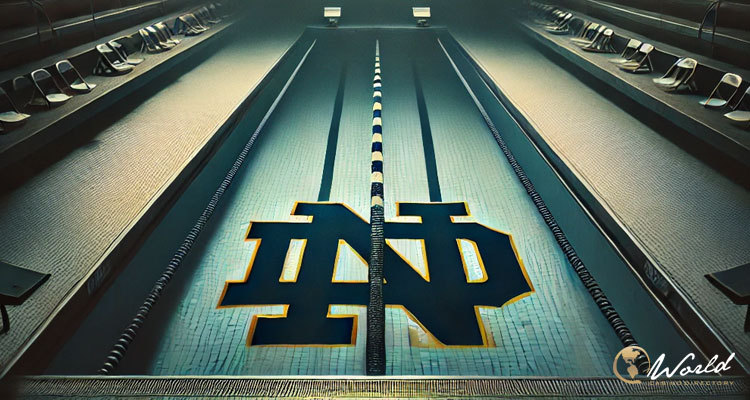The University of Notre Dame, Indiana, has announced a suspension of its men’s swimming program for at least one academic year following an investigation that revealed violations of NCAA gambling regulations. This decision comes after an external review confirmed reports of misconduct within the team, indicating a breach of the expected conduct standards for student-athletes.
Investigation and findings:
Notre Dame initiated an external investigation after allegations of misconduct surfaced, aiming to uphold its commitment to integrity and respect within its athletic programs. According to Pete Bevacqua, Notre Dame’s director of athletics, the investigation “confirmed and expanded on our initial concerns about a deeply embedded team culture dismissive of Notre Dame’s standards for student-athletes, including our expectation that they treat one another with dignity and respect.” As CNN reports, the probe uncovered numerous violations related to gambling on intercollegiate swimming and other sports, despite the athletes receiving clear and recurrent training on NCAA rules.
The decision to suspend the program affects both current team members and new recruits who were looking forward to joining the team this fall. The NCAA, while not commenting on specific cases due to student privacy laws, acknowledged ongoing cooperation with Notre Dame to resolve the matter. “The national office is aware that Notre Dame has declared several student-athletes ineligible in light of potential violations of sports betting rules,” stated NCAA spokeswoman Meghan Durham Wright.
Sources, as first reported by Sports Illustrated’s Pat Forde, claim the men’s team had created its own internal sportsbook for wagering on their swimming performances. This makeshift betting ring involved more than 60% of the team, including returning members who participated in betting on the performances of team members at meets. The investigation revealed that some team members had also placed bets on major events like the Super Bowl and NCAA basketball tournaments.
Administrative and coaching response:
The university’s athletic department expressed regret over the need to penalize students who were not involved in the violations but emphasized the necessity of this action to rebuild a culture of dignity and respect. Coach Chris Lindauer and his staff, who were reportedly unaware of the gambling and other concerning behaviors, fully cooperated with the investigation. According to Bevacqua, the staff treated isolated incidents of misconduct seriously and professionally upon becoming aware of them.
As a part of its corrective measures, Notre Dame will allow affected team members to transfer, although NCAA sanctions will follow those found to have breached gambling regulations. This case adds to a series of recent gambling-related incidents in college sports, prompting Notre Dame and other institutions to review their internal processes and reporting structures thoroughly.
“This decision sends a clear and unequivocal message reaffirming our commitment to integrity,” Bevacqua stated, according to the Associated Press (AP), emphasizing the university’s dedication to fostering a positive environment for all its student-athletes.



